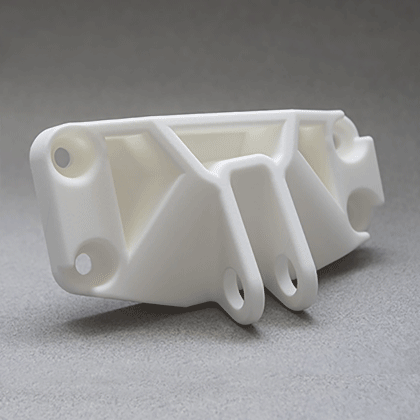Unlock the Future of Fabrication: Discover the Magic of SLS Printing Services!
Selective Laser Sintering (SLS) printing services are revolutionizing the landscape of modern fabrication. This innovative technology employs lasers to fuse powdered materials, creating intricate and precise three-dimensional objects. The significance of SLS printing lies in its ability to produce complex geometries that traditional manufacturing methods struggle to achieve. With a wide range of materials, including plastics and metals, SLS printing is not only versatile but also enables rapid prototyping and low-volume production, making it ideal for industries like automotive, aerospace, and healthcare. In this article, we will explore how to find and inquire about SLS printing services, equipping you with the knowledge to leverage this technology for your next project.

Understanding SLS Printing Technology
At the heart of SLS printing technology is the layer-by-layer approach to fabrication. The process begins with a bed of powdered material, which is evenly spread across the build platform. A high-powered laser selectively scans the surface, fusing the powder according to the digital model provided. Once a layer is completed, the platform lowers slightly, and a new layer of powder is added, repeating the process until the object is fully formed. This method allows for intricate designs and strong, functional parts without the need for support structures, as the unfused powder surrounds the object during printing.
The materials used in SLS printing play a crucial role in its versatility. Commonly used materials include nylon, which is known for its strength and flexibility, and various metal powders that can produce durable parts suitable for high-stress applications. Compared to other printing technologies like Fused Deposition Modeling (FDM) or Stereolithography (SLA), SLS offers superior durability and thermal resistance, making it a preferred choice for industrial applications. As the demand for custom, on-demand production increases, SLS printing continues to gain traction in various sectors, thanks to its efficiency and adaptability.
Applications of SLS Printing Services
SLS printing services are utilized across multiple industries, showcasing their flexibility and effectiveness. In the automotive sector, SLS technology is employed for creating lightweight components that improve fuel efficiency without compromising strength. Additionally, it allows for rapid prototyping, enabling car manufacturers to test designs quickly and iteratively.
In aerospace, the need for high-performance materials and complex geometries makes SLS an invaluable tool. Components such as brackets and housings can be produced with reduced weight while maintaining structural integrity. The healthcare industry also benefits from SLS printing; custom prosthetics and dental devices can be tailored to individual patient needs, enhancing comfort and functionality.
Consumer goods manufacturers leverage SLS to create unique products and limited-edition items that cater to niche markets. This adaptability across different fields highlights the transformative potential of SLS printing services, making them a crucial asset in modern manufacturing.
How to Find SLS Printing Services
Finding reliable SLS printing services requires a strategic approach. Start by researching local and online providers with a strong reputation in the industry. Look for companies that specialize in SLS technology, as they will have the expertise and equipment to meet your specific needs. Reading reviews and testimonials can provide insight into the quality of their work and customer service.
When evaluating potential providers, consider their capabilities and the range of materials they offer. It's also essential to understand your project requirements, including size, complexity, and material specifications, before reaching out. This preparation will help you communicate effectively with service providers and ensure a smoother collaboration.
Networking within industry forums and attending trade shows can also be beneficial for discovering SLS printing services. Engaging with professionals who have firsthand experience can lead to valuable recommendations and insights.
Inquiring and Purchasing SLS Printing Services
When inquiring about SLS printing services, it's vital to ask the right questions to ensure you receive the best possible outcome. Start by discussing your project details, including design files, material preferences, and desired finish. This information will help the service provider understand your vision and provide accurate feedback.
In addition to project specifics, be sure to inquire about pricing and lead times. Understanding the cost structure and the timeline for production is crucial for planning your project effectively. Clear communication is key—don't hesitate to express any concerns or requirements you may have. A reputable service provider will be open to discussions and strive to accommodate your needs.
Finally, once you receive a quote, review it carefully. Ensure that all aspects of the project are covered, and don’t hesitate to ask for clarification on any points that seem unclear.
Maximizing the Benefits of SLS Printing Services
In summary, SLS printing services are at the forefront of modern manufacturing, offering precision, versatility, and innovative solutions for various industries. By understanding the technology, exploring its applications, and knowing how to find and inquire about these services, you can unlock the potential of SLS printing for your projects. Whether you're in automotive, aerospace, healthcare, or consumer goods, embracing SLS technology can lead to significant advancements in your production capabilities. We encourage you to delve deeper into SLS printing services and discover how they can enhance your business and creative endeavors.







